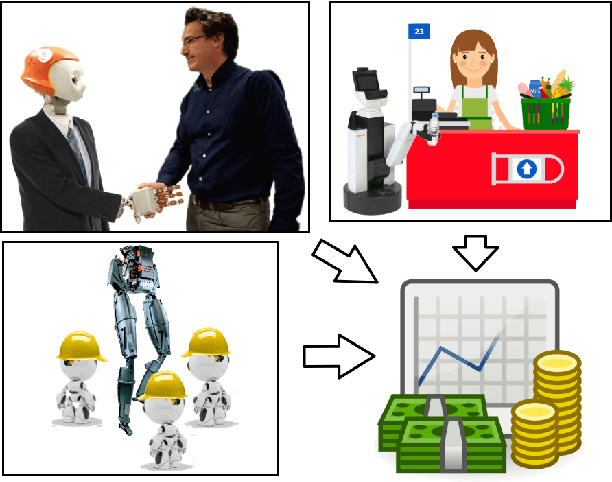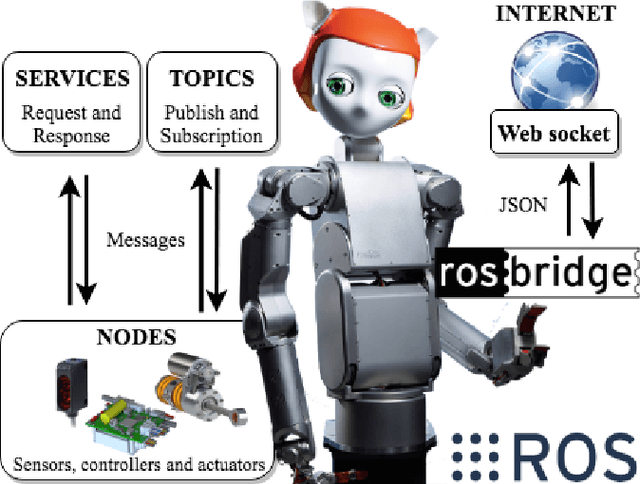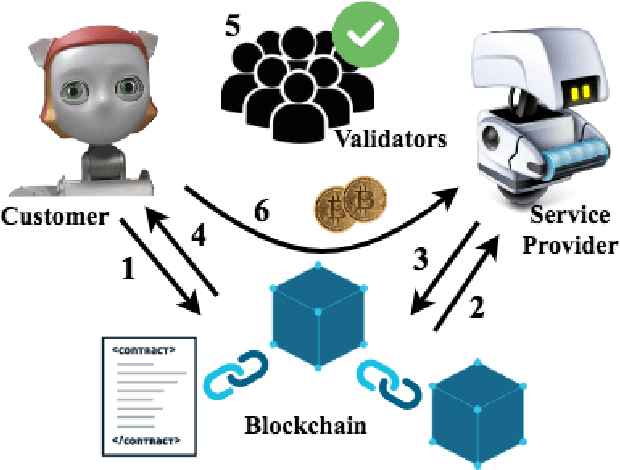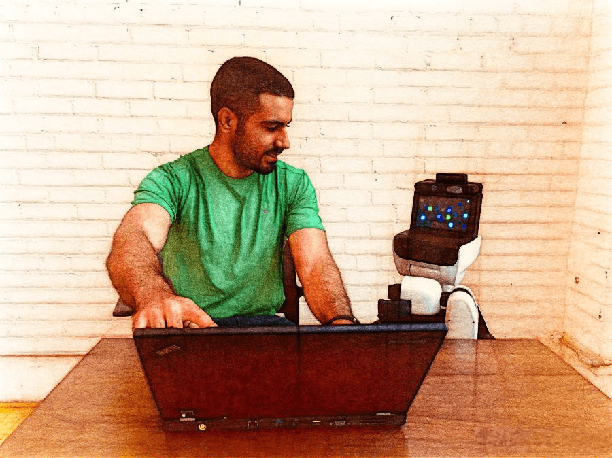Robot Economy: Ready or Not, Here It Comes
Paper and Code
Jan 20, 2019



Automation is not a new phenomenon, and questions about its effects have long followed its advances. More than a half-century ago, US President Lyndon B. Johnson established a national commission to examine the impact of technology on the economy, declaring that automation "can be the ally of our prosperity if we will just look ahead". In this paper, our premise is that we are at a technological inflection point in which robots are developing the capacity to do greatly increase their cognitive and physical capabilities, and thus raising questions on labor dynamics. With increasing levels of autonomy and human-robot interaction, intelligent robots could soon accomplish new human-like capabilities such as engaging into social activities. Therefore, an increase in automation and autonomy capacity brings the question of robots directly participating in some economic activities as autonomous agents. In this paper, a technological framework describing a robot economy is outlined and the challenges it might represent in the current socio-economic scenario are pondered.
 Add to Chrome
Add to Chrome Add to Firefox
Add to Firefox Add to Edge
Add to Edge